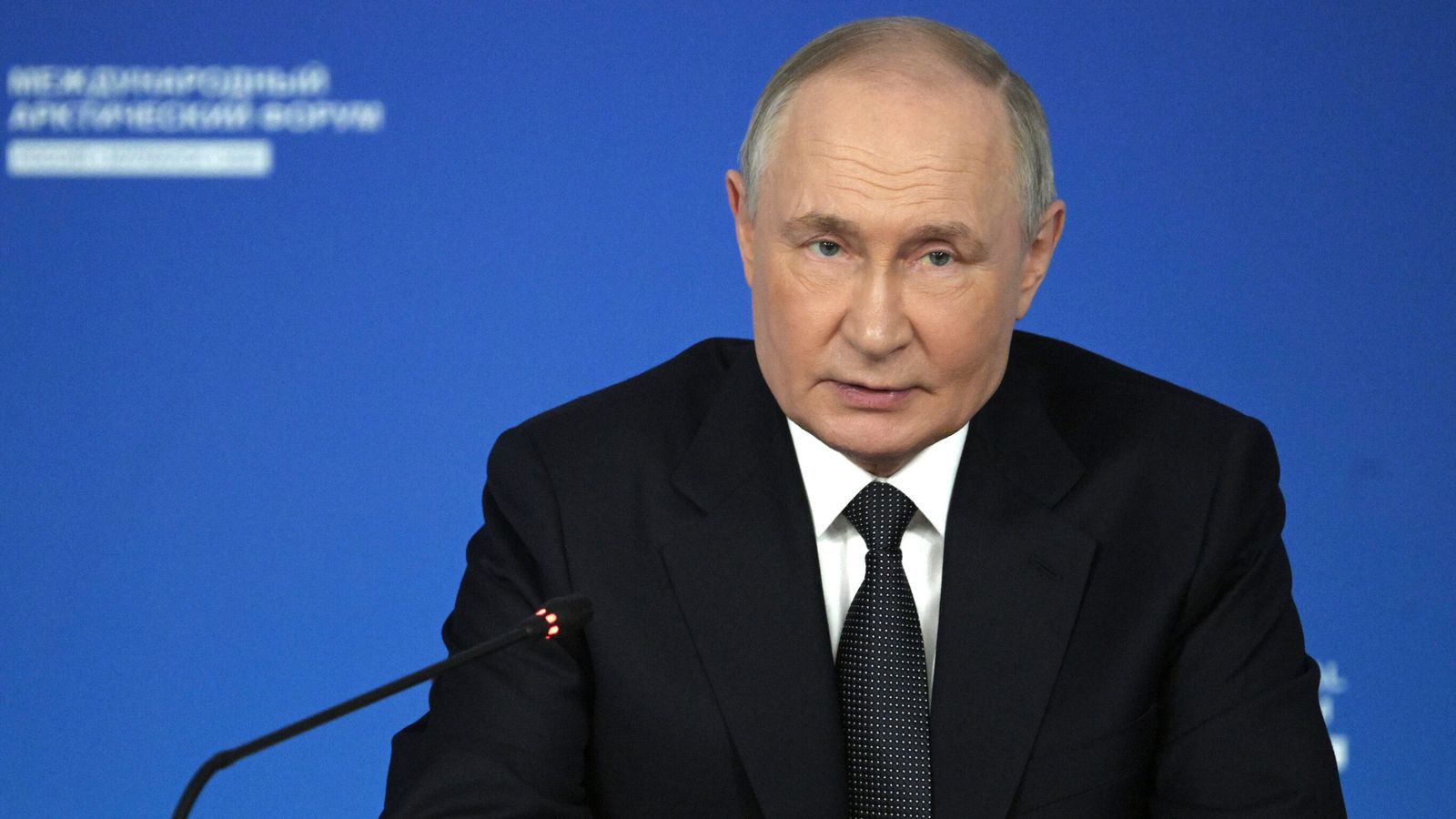Putin: US Eyes Greenland, Russia Defends Arctic
Russia's President Vladimir Putin has accused the United States of eyeing Greenland for strategic military purposes, escalating tensions in the increasingly contested Arctic region. His comments come amidst a backdrop of growing competition for Arctic resources and influence, sparking concerns about a potential new Cold War-style standoff.
This isn't the first time concerns have been raised about US intentions in the Arctic. Past discussions about Greenland’s potential strategic value have focused on its geographic location, offering access to crucial shipping lanes and potential military bases. However, Putin's recent statements add a significant layer of geopolitical tension.
Russia's Arctic Strategy: A Fortress of the North?
Russia, possessing the longest Arctic coastline of any nation, views the region as a vital national interest. They've invested heavily in modernizing their military infrastructure in the Arctic, including establishing new bases, deploying advanced weaponry, and bolstering their icebreaker fleet. This assertive approach underscores Russia's determination to maintain its dominance in the region. Putin's statement should be seen within the context of this broader strategy.
- Military Buildup: Russia has significantly upgraded its military presence in the Arctic, including the deployment of advanced fighter jets, missile systems, and sophisticated radar technology.
- Resource Exploitation: The Arctic holds vast reserves of oil, gas, and minerals. Russia is actively pursuing the extraction and exploitation of these resources, solidifying its economic stake in the region.
- Shipping Routes: The melting Arctic ice cap is opening up new shipping routes, offering faster and more efficient trade links. Russia is keen to capitalize on this, strategically positioning itself to benefit from this development.
The US Perspective: Strategic Interests and Geopolitical Dynamics
While the US hasn't explicitly confirmed military ambitions in Greenland, its increased focus on Arctic security is undeniable. This involves strengthening alliances with Arctic nations, enhancing military capabilities in the region, and participating in joint military exercises. These actions can be viewed as a response to Russia's growing influence and a reflection of the US's broader national security strategy.
- Climate Change Impacts: The melting Arctic ice cap presents both opportunities and challenges. The US, along with other nations, is concerned about the environmental impact of resource extraction and the potential for increased geopolitical instability.
- International Cooperation: Despite the growing competition, there's a recognition of the need for international cooperation on issues like environmental protection, scientific research, and maritime safety in the Arctic.
- Strategic Partnerships: The US is strengthening its partnerships with NATO allies and other Arctic nations to ensure a stable and secure Arctic region.
The Greenland Factor: A Geopolitical Chess Piece
Greenland, an autonomous territory within the Kingdom of Denmark, holds a crucial strategic location. Its vast expanse and proximity to key shipping routes make it an attractive asset for any nation seeking to exert influence in the Arctic. While Greenland has expressed its own ambitions for independence and sustainable development, it finds itself caught in the crosshairs of this intensifying geopolitical competition.
The accusations made by Putin underscore the heightened tensions and the complex geopolitical game being played out in the Arctic. The future of this region will depend on the balance between competing national interests, international cooperation, and the urgent need to address the environmental challenges posed by climate change.
Conclusion: A New Cold War in the Arctic?
Putin's comments raise serious concerns about the potential for escalation in the Arctic. The region's strategic importance, combined with the growing competition for resources and influence, creates a volatile environment. While outright conflict might not be imminent, the rhetoric and military buildup highlight the urgent need for dialogue and international cooperation to prevent a new era of Arctic tension. The international community must work together to establish clear rules of engagement and ensure the sustainable development of this crucial region. The stakes are high, and the future of the Arctic hangs in the balance.

